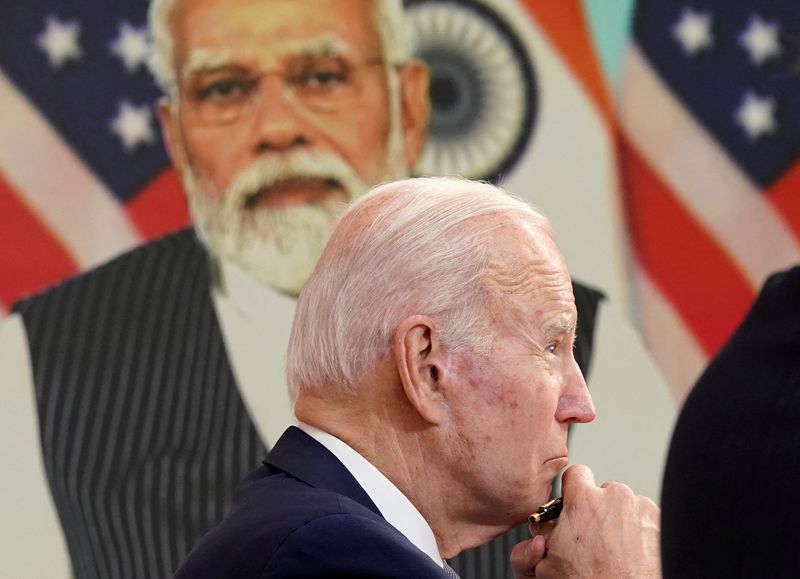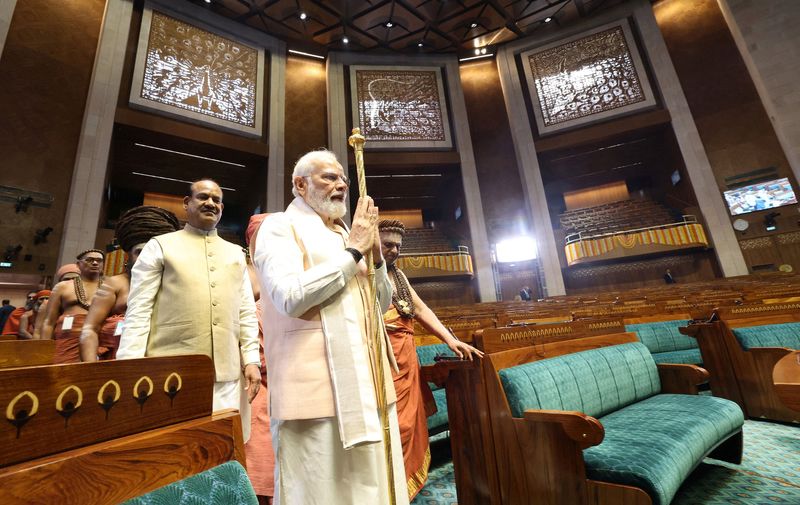By David Brunnstrom and Michael Martina
WASHINGTON (Reuters) -President Joe Biden's top official for the Indo-Pacific region said on Tuesday he hoped a visit this month by Indian Prime Minister Narendra Modi "consecrates" the relationship with India as the most important for the U.S. in the world.
The official, Kurt Campbell, told the Hudson (NYSE:HUD) Institute think tank India was playing a "critical role" globally and not just strategically.
"Many business groups, investment groups, are looking at India as part of a strategy to diversify globally new supply chains, new investment opportunities," he said. "I think the hope will be to open up venues and activities for more investment."
Campbell added that U.S. universities wanted to train more engineers and technology specialists and the United States wanted to open up more of those opportunities to Indians.
He said that while the United States and India were both "imperfect democracies" and there were still "concerns" that would be discussed, there was "a degree of trust and confidence" between the countries that did not exist a decade ago.
"Our goal will be to seek to build on that," Campbell said.
"My hope is that this visit basically consecrates the U.S.- India relationship as the most important bilateral relationship with the United States on the global stage, and that we effectively make it into sort of escape velocity."
The United States sees India as vital partner in its efforts to push back against China's expanding influence worldwide, even though it remains concerned about New Delhi's strong ties to Russia, despite the Ukraine war, and Modi's rights record.

The White House announced last month it would welcome Modi for an official state visit on June 22, despite advocacy groups' concerns over what they see as a deteriorating human rights situation under his Hindu nationalist Bharatiya Janata Party.
U.S. lawmakers have also invited Modi to address a joint meeting of Congress. It will be Modi's second such address, a rare honor for a leader once denied a visa to enter the United States over human rights concerns.
